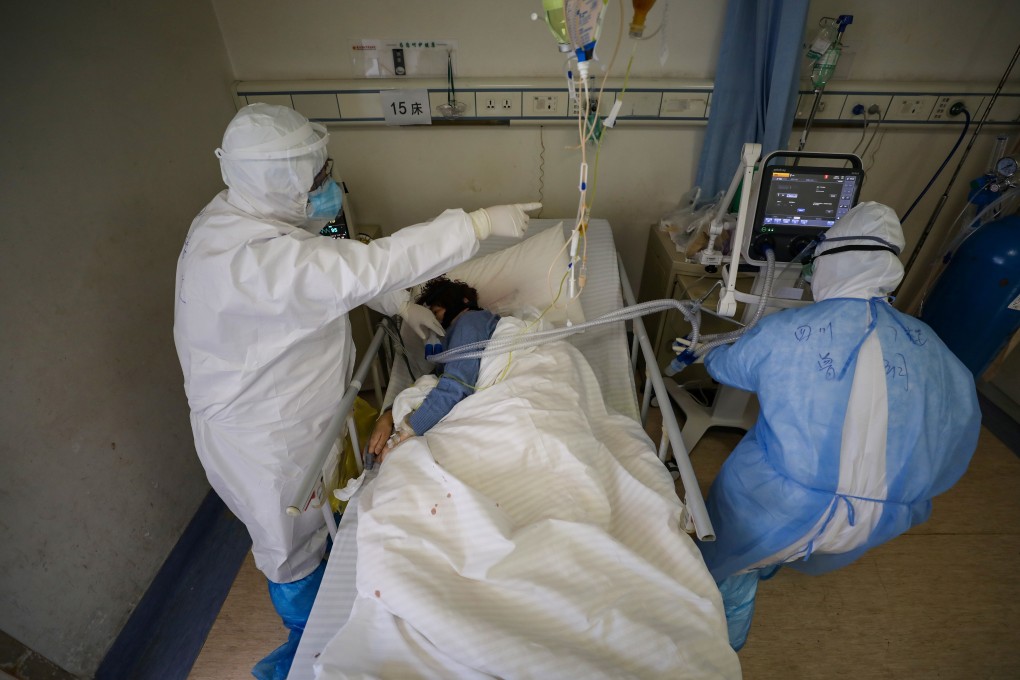Man killed by coronavirus had organ damage similar to that caused by Sars, study finds
- Pathological features of Covid-19 greatly resemble those seen in Sars and Mers, say researchers in Beijing, who used samples from 50-year-old
- Corticosteroid treatment should be considered, their report says, but other studies suggest the anti-inflammatory drugs cause complications

The report, published this week in British medical journal The Lancet by experts from the Fifth Medical Centre of the People’s Liberation Army’s General Hospital in Beijing, obtained biopsy samples from the autopsy of a 50-year-old man who died in late January of Covid-19 – the formal name for the pneumonia-like disease caused by the coronavirus outbreak discovered in December in Wuhan, central China.
A review of the patient’s lung, liver and heart tissue showed “the pathological features of Covid-19 greatly resemble those seen in severe acute respiratory syndrome (Sars) and Middle Eastern respiratory syndrome (Mers) coronavirus infections”, the authors said.
The Sars outbreak of 2002-03, which originated in southern China, killed more than 800 people in more than two dozen countries, while the 2012 Mers outbreak, first identified in Saudi Arabia, led to 860 deaths globally.
The man featured in the Beijing study, who showed initial symptoms on January 14 and died two weeks later, was found to have damage to the alveoli in both of his lungs and injury to his liver that may have been caused either by infection by the coronavirus or by the drugs used to treat him, the report said. There was less substantial damage to the heart tissue, suggesting that the infection “might not directly impair the heart”, it said.
The researchers said that corticosteroid treatment – the use of anti-inflammatory drugs that the World Health Organisation (WHO) has recommended should not be routinely used outside clinical trials – should be considered with ventilator support for coronavirus patients in a severe condition, given the study’s findings of lung damage in the 50-year-old man.
